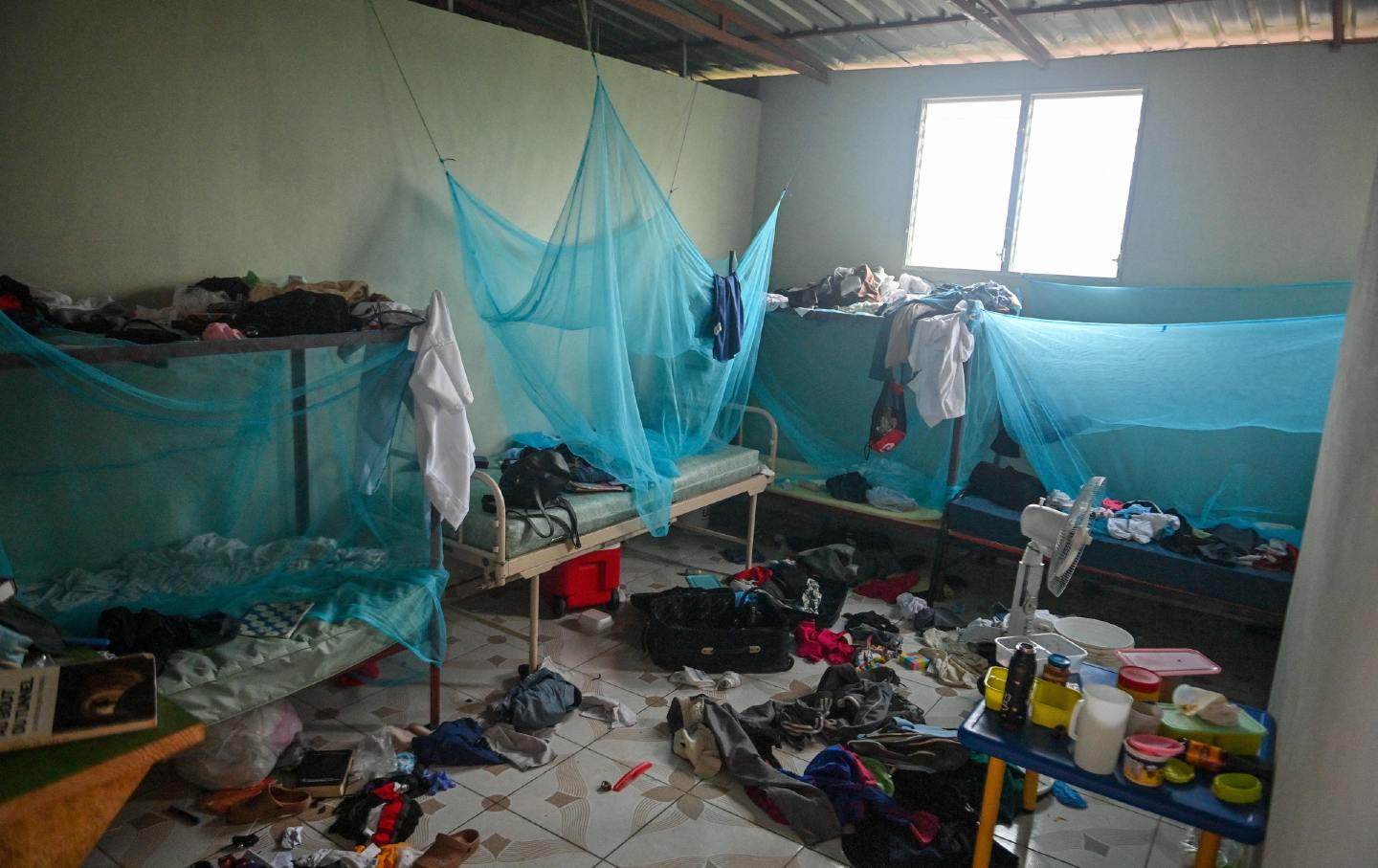The Families That Made Fortunes Selling Opium, Plus the News from Haiti
On this episode of Start Making Sense, Amitav Ghosh explains what the “China trade” was actually doing, and Amy Wilentz reports on the continuing American disaster in the Caribbean.

Here's where to find podcasts from The Nation. Political talk without the boring parts, featuring the writers, activists and artists who shape the news, from a progressive perspective.
The blue-blood families that made fortunes in the opium trade: Amitav Ghosh recounts the origins of much of the wealth for the 19th century New England elite on this episode of the Start Making Sense podcast. He wrote the cover story for The Nation's latest print issue. His new book is called Smoke and Ashes.
Also on this episode: The latest US moves in Haiti are framed in democratic rhetoric but are deeply anti-democratic in their effect. Amy Wilentz is on the podcast to explain. She’s written two books about Haiti, most recently the award-winning Farewell Fred Voodoo.
Advertising Inquiries: https://redcircle.com/brands
Privacy & Opt-Out: https://redcircle.com/privacy

An empty hospital dormitory is in chaos after an armed attack forced the closure of Fontaine Hospital in Port-au-Prince, Haiti, November 18, 2023.
(Richard Pierrin / AFP via Getty Images)The blue-blood families that made fortunes in the opium trade: Amitav Ghosh recounts the origins of much of the wealth for the 19th-century New England elite on this episode of the Start Making Sense podcast. He wrote the cover story for The Nation‘s latest print issue. His new book is called Smoke and Ashes.
Also on this episode: The latest US moves in Haiti are framed in democratic rhetoric but are deeply antidemocratic in their effect. Amy Wilentz is on the podcast to explain. She’s written two books about Haiti, most recently the award-winning Farewell Fred Voodoo.

Here's where to find podcasts from The Nation. Political talk without the boring parts, featuring the writers, activists and artists who shape the news, from a progressive perspective.
The first big election of 2025 will be in Wisconsin, which elects a new Supreme Court Justice on April 1. Elon Musk is spending hundreds of millions in that race. That’s both a threat, and an opportunity for Democrats. On this episode of Start Making Sense, John Nichols will comment.
Also: How did we end up with Trump back in the White House? We got here in part because Republicans built a movement over several decades centered on what are called “the culture wars.” But there’s a long history behind the culture wars, going back at least a century to the Scopes Trial, in 1925, about teaching evolution. It’s still an issue today. Adam Hochschild is on the show to explain.
Advertising Inquiries: https://redcircle.com/brands
Privacy & Opt-Out: https://redcircle.com/privacy
